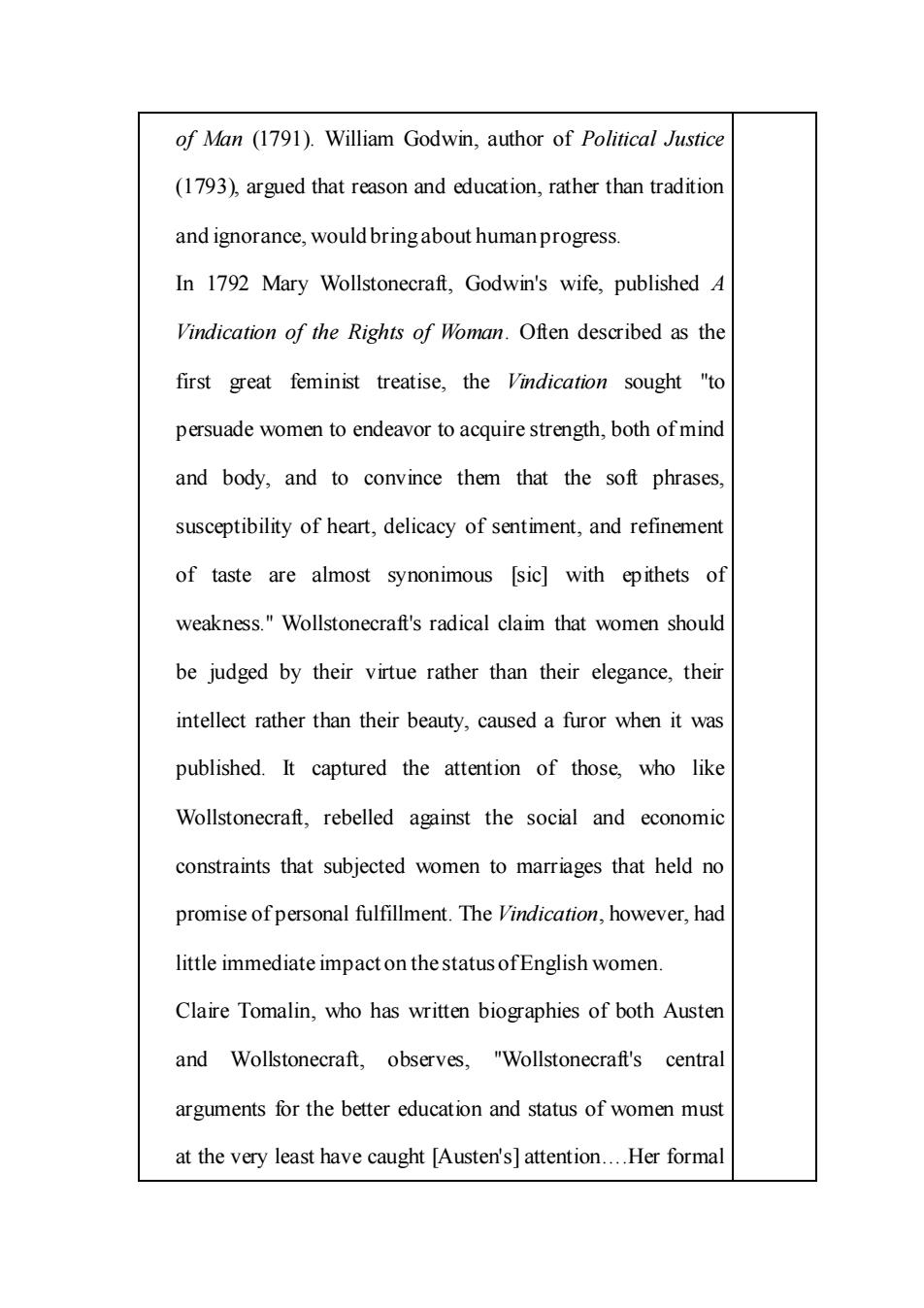正在加载图片...

of Man (1791).William Godwin,author of Political Justice (1793),argued that reason and education,rather than tradition and ignorance,would bring about human progress. In 1792 Mary Wollstonecraft,Godwin's wife,published A Vindication of the Rights of Woman.Often described as the first great feminist treatise,the Vindication sought "to persuade women to endeavor to acquire strength,both of mind and body,and to convince them that the soft phrases. susceptibility of heart,delicacy of sentiment,and refinement of taste are almost synonimous [sic]with epithets of weakness."Wollstonecraft's radical claim that women should be judged by their virtue rather than their elegance,their intellect rather than their beauty,caused a furor when it was published.It captured the attention of those,who like Wollstonecraf,rebelled against the social and economic constraints that subjected women to marriages that held no promise of personal fulfillment.The Vindication,however,had little immediate impact on the status ofEnglish women. Claire Tomalin,who has written biographies of both Austen and Wollstonecraft,observes,"Wollstonecraft's central arguments for the better education and status of women must at the very least have caught [Austen's]attention.Her formalof Man (1791). William Godwin, author of Political Justice (1793), argued that reason and education, rather than tradition and ignorance, would bring about human progress. In 1792 Mary Wollstonecraft, Godwin's wife, published A Vindication of the Rights of Woman. Often described as the first great feminist treatise, the Vindication sought "to persuade women to endeavor to acquire strength, both of mind and body, and to convince them that the soft phrases, susceptibility of heart, delicacy of sentiment, and refinement of taste are almost synonimous [sic] with epithets of weakness." Wollstonecraft's radical claim that women should be judged by their virtue rather than their elegance, their intellect rather than their beauty, caused a furor when it was published. It captured the attention of those, who like Wollstonecraft, rebelled against the social and economic constraints that subjected women to marriages that held no promise of personal fulfillment. The Vindication, however, had little immediate impact on the status of English women. Claire Tomalin, who has written biographies of both Austen and Wollstonecraft, observes, "Wollstonecraft's central arguments for the better education and status of women must at the very least have caught [Austen's] attention.Her formal